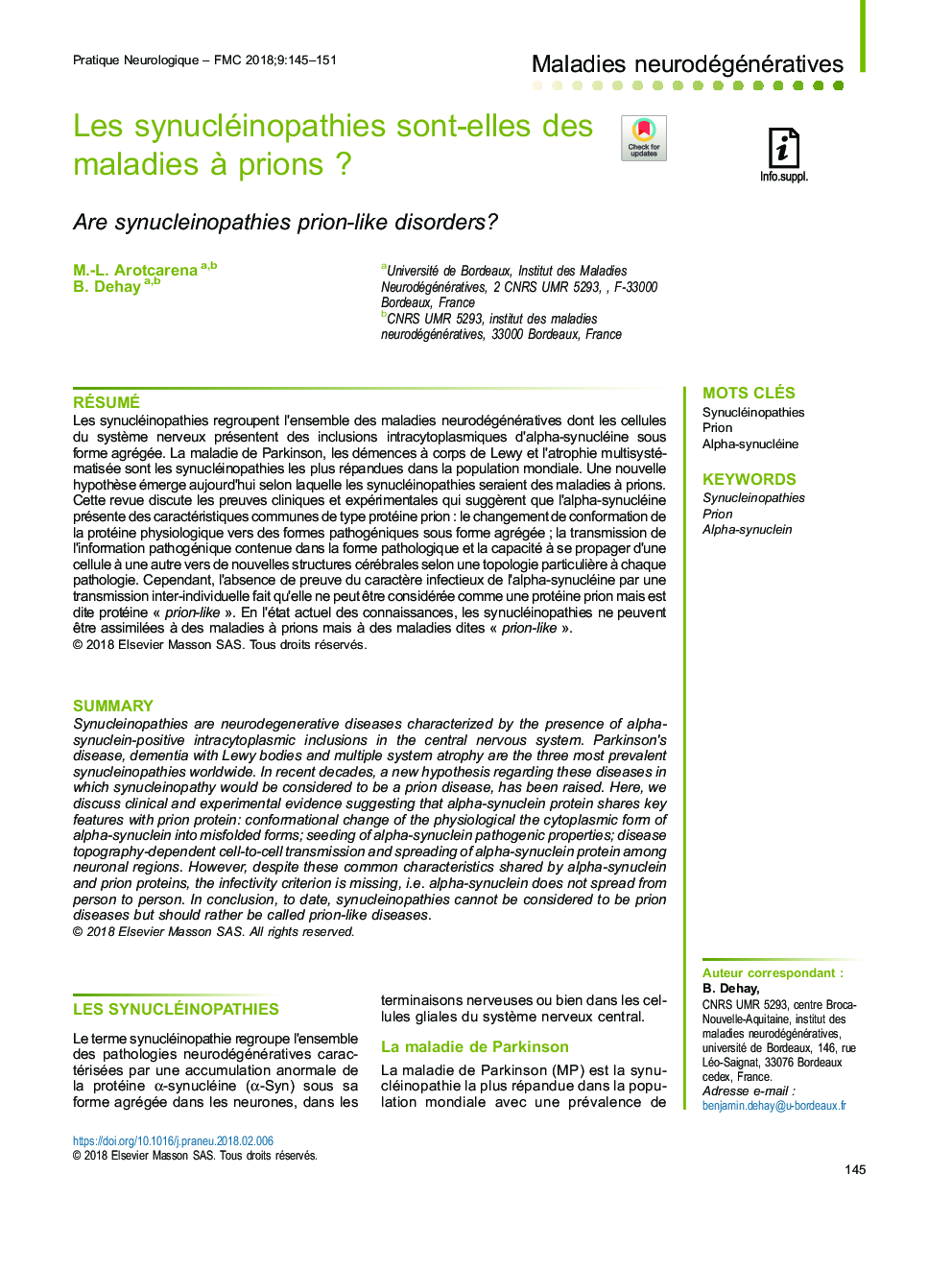| Article ID | Journal | Published Year | Pages | File Type |
|---|---|---|---|---|
| 8690615 | Pratique Neurologique - FMC | 2018 | 7 Pages |
Abstract
Synucleinopathies are neurodegenerative diseases characterized by the presence of alpha-synuclein-positive intracytoplasmic inclusions in the central nervous system. Parkinson's disease, dementia with Lewy bodies and multiple system atrophy are the three most prevalent synucleinopathies worldwide. In recent decades, a new hypothesis regarding these diseases in which synucleinopathy would be considered to be a prion disease, has been raised. Here, we discuss clinical and experimental evidence suggesting that alpha-synuclein protein shares key features with prion protein: conformational change of the physiological cytoplasmic form of alpha-synuclein into misfolded forms; seeding of alpha-synuclein pathogenic properties; disease topography-dependent cell-to-cell transmission and spreading of alpha-synuclein protein among neuronal regions. However, despite these common characteristics shared by alpha-synuclein and prion proteins, the infectivity criterion is missing, i.e. alpha-synuclein does not spread from person to person. In conclusion, to date, synucleinopathies cannot be considered to be prion diseases but should rather be called prion-like diseases.
Related Topics
Life Sciences
Neuroscience
Neurology
Authors
M.-L. Arotçarena, B. Dehay,
